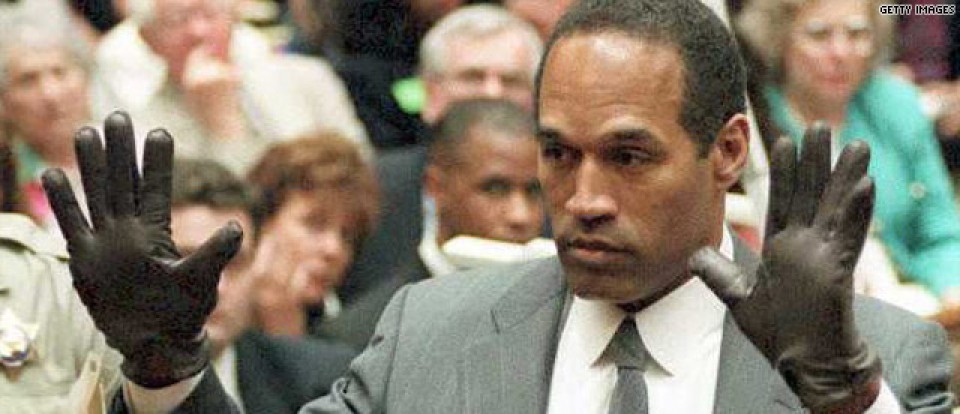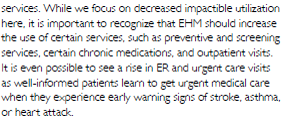You may remember our series on the HERO Outcomes Guidelines Report. We had observed that their own numbers showed wellness loses money. Specifically, they showed a program costing $18/person/year or $1.50 PMPM:
Gross savings were pegged at $0.99 PMPM:
Silly ol’ me reasoned that if a program costs $0.51 more per month than it saves, that annual net losses would exceed $6.00. Of course, that’s before counting all the other costs that the HERO Guidebook listed (pp 10-11) but conveniently overlooked in their actual cost calculation:
Silly ol’ me also assumed these cost and savings figures had been approved by the 60 “subject matter experts” who reached “consensus” in this report, consensus being a word that appears 16 times. The report itself required “two years and countless hours of collaboration.” (p. 3)
Hopefully you can see how I might have been inadvertently misled into thinking the report actually did represent expert consensus, reached after two years and countless hours of collaboration.
I’ve since learned that the nice people at HERO are very upset with me for falsely assuming that the information in their report represents the information in their report.
They call my lapse of integrity “outrageous.” This adjective was contained in a letter read but not sent to me by a member of the HERO Board. (At the risk of blowing his cover, this is a guy known for his integrity.) Staywell’s Paul Terry, whose own escapades have been well-chronicled on The Health Care Blog, had apparently circulated this letter around a while back on behalf of HERO.
Specifically, Terry stated it was “outrageous” that I had failed to mention that this money-losing scenario in the HERO Report was just one example of a wellness outcome. For some unknown reason, HERO elected to illustrate the financial benefits of wellness with an example that loses money. That would be like a tobacco company illustrating the health benefits of smoking with this example:
Piling on, Ron Goetzel also disavowed the HERO report’s figures during our debate, stating that his numbers are “wildly different” from the ones in the report he co-authored.
Apology and Atonement
I apologize.
To atone, I will substitute Ron’s recommended “wildly different” wellness budget of $150 per employee per year for the report’s $18 PEPY. Then let’s adjust the $0.99 PEPM savings in reduced wellness-sensitive medical event (WSME) spending for the natural decline in WSMEs that occurred over the same period, according to Truven. Truven is Ron’s employer and hence is presumably the source of Ron’s “wildly different” figures for WSMEs.
If you can’t read Truven’s numbers above, they show a decline in WSMEs in the working-age insured population between 2009 and 2012 of 23%. This actually greater than the 17% (3.14 down to 2.62 “potentially preventable hospitalizations” per 1000) decline in the HERO example over the same period:
But we’ll give HERO the benefit of the doubt and say doing wellness reduced wellness-sensitive events as much as not doing wellness would have reduced them.
That actually is the “benefit of the doubt” because a review of all the Truven data compiled for the government shows that indeed WSMEs have consistently trended more favorably in the non-exposed populations than in the”privately insured” population below (in green), much of which was exposed to wellness.
Adjusting for the benefit-of-the-doubt secular decline in WSMEs wipes out gross savings — even without counting all the following claims costs that HERO says should actually increase:
Or maybe those cost increases also only happen in this one rogue example in this one rogue chapter. And maybe this one rogue chapter (Chapter 1) just contains a terrible, horrible, no good, very bad example that somehow accidentally found its way into the HERO Guidelines Report even though none of the 60 subject matter experts believe it. Or maybe two years wasn’t enough time for these experts to review it, though my review required only five minutes. Perhaps that’s because when I read, I don’t move my lips.
So…
Per HERO’s and Ron’s request, I’ll replace their original estimate of $6 in annual losses PEPY with Ron’s new net loss estimate of $150 PEPY. And that’s without the multitudinous added costs that they also listed but never counted.
All in, my original estimate was off by almost two decimal points. However, I take responsibility only for the magnitude of the error, not for the delay in correcting it. If HERO had told me last year to substitute these real figures for their rogue example, I would have corrected the figures posthaste.
And my lips would have morphed into a great big smile.











I love the way you make it clear these people are liars and idiots without actually calling them names. Hey I followed that link to Ron Geotzel’s $150 wellness program. I couldn’t find it.
LikeLike
I learned a lot in kindergarten, specifically in show-and-tell. Always better to show than tell. That Goetzel link is there. You have to scroll down to the second page. WELCOA and Goetzel are both quoted as saying how much a program should cost. Goetzel also says to “expect” a 3-to-1 ROI, though in our debate he said to expect a 1-to-1 ROI.
LikeLike
One of the problems with lying is the inability to keep the lies straight over time. When I was experimenting with wellness over my career, I consistently found the the wellness group did not do bit better than the “control” group. But then I was trying to get at the truth, not manipulating data to make it look like wellness works. You’re doing a great pubic service Al and Vik.
LikeLike
Thanks, Tom. HERO’s beef with us, ironically, was complaining that we had told the truth. Shame on us for quoting their report as written!
LikeLike